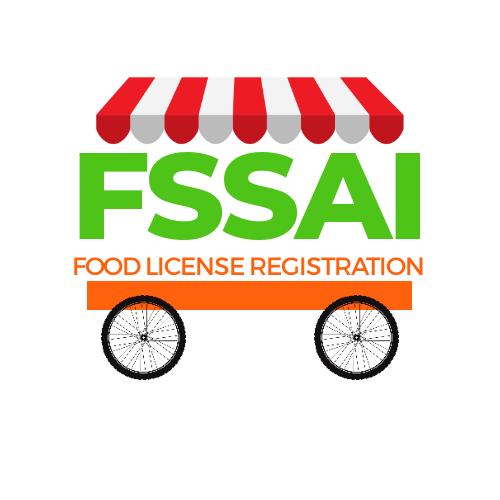A Comprehensive Guide to Food Certification in India: FAQs, Steps, and Expert Insights
In the dynamic landscape of the food industry, ensuring the safety and quality of products is paramount. Food certification plays a crucial role in this process, providing consumers with confidence in the products they consume. This comprehensive guide aims to demystify the intricacies of obtaining food certification in India, offering valuable insights, step-by-step procedures, and addressing common questions businesses may have.

Table of Contents
- Introduction
- Importance of Food Certification
- Regulatory Bodies in India
- Types of Food Certification
- FSSAI Certification
- Organic Certification
- Halal Certification
- ISO 22000 Certification
- FAQs on Food Certification in India
- What is the Importance of FSSAI Certification?
- How to Apply for FSSAI Certification?
- What is the Process for Organic Certification?
- Is Halal Certification Necessary for Food Businesses?
- Advantages of ISO 22000 Certification
- Common Misconceptions about Food Certification
- Steps to Obtain Food Certification
- Preparing for Certification
- Application Process
- Documentation Requirements
- Inspection and Auditing
- Certification Issuance
- Challenges in Food Certification
- Regulatory Compliance
- Documentation Accuracy
- Implementation of Standards
- Benefits of Food Certification
- Consumer Trust and Confidence
- Market Access and Global Expansion
- Compliance with Industry Standards
- Case Studies
- Successful Food Certification Stories
- Overcoming Challenges
- Future Trends in Food Certification
- Technological Advancements
- Evolving Regulatory Landscape
- Conclusion
- Summary of Key Points
- Encouragement for Businesses
Introduction
Importance of Food Certification
In the competitive and health-conscious market, consumers demand transparency and assurance regarding the safety and quality of the food they consume. Food certification serves as a tangible proof of a business’s commitment to meeting stringent standards and regulations.
Regulatory Bodies in India
Understanding the regulatory framework is crucial for businesses operating in the food industry. The Food Safety and Standards Authority of India (FSSAI) is the primary regulatory body responsible for ensuring food safety and regulating the food business in India.
Types of Food Certification
FSSAI Certification
The FSSAI certification is mandatory for all food businesses in India. It ensures that the food products meet the safety standards set by the FSSAI.
Organic Certification
For businesses producing or selling organic food products, obtaining organic certification is essential. This certification verifies that the products are grown or processed without synthetic chemicals.
Halal Certification
Halal certification is significant for businesses catering to Muslim consumers. It assures that the food products comply with Islamic dietary laws.
ISO 22000 Certification
ISO 22000 is an international standard that outlines the requirements for a food safety management system. While not mandatory, obtaining ISO 22000 certification adds credibility to a business’s food safety practices.
FAQs on Food Certification in India
What is the Importance of FSSAI Certification?
FSSAI certification is crucial as it ensures that the food products comply with safety standards. It builds trust among consumers and is a legal requirement for operating in the food industry.
How to Apply for FSSAI Certification?
Businesses can apply for FSSAI certification through the online portal. The process involves filling out the application, submitting necessary documents, and undergoing inspection by FSSAI officials.
What is the Process for Organic Certification?
Obtaining organic certification involves engaging with a certifying agency accredited by the Agricultural and Processed Food Products Export Development Authority (APEDA). The process includes document submission, inspection, and certification issuance.
Is Halal Certification Necessary for Food Businesses?
While not mandatory, Halal certification opens up new markets for businesses. It ensures that the food products meet the dietary requirements of Muslim consumers.
Advantages of ISO 22000 Certification
ISO 22000 certification enhances a business’s reputation by demonstrating a commitment to food safety. It also streamlines processes and improves overall efficiency.
Common Misconceptions about Food Certification
Addressing misconceptions is crucial. Common myths include the belief that certification is only for large businesses or that it is a one-time process.
Steps to Obtain Food Certification
Preparing for Certification
Before initiating the certification process, businesses should conduct a thorough internal review to ensure compliance with standards.
Application Process
The application process varies for different certifications but generally involves filling out forms, providing necessary documentation, and paying the required fees.
Documentation Requirements
Accurate documentation is a cornerstone of food certification. Businesses must prepare documents related to product information, manufacturing processes, and quality control measures.
Inspection and Auditing
Certification bodies conduct on-site inspections to verify compliance with standards. This may involve checking facilities, processes, and documentation.
Certification Issuance
Upon successful completion of the inspection, the certification body issues the food certification. This officially recognizes the business’s adherence to quality and safety standards.
Challenges in Food Certification
Regulatory Compliance
Staying updated with evolving regulations poses a challenge. Businesses must invest time and resources in understanding and implementing regulatory changes.
Documentation Accuracy
Inaccurate or incomplete documentation can lead to certification delays or rejections. Businesses must ensure that all required documents are precise and up-to-date.
Implementation of Standards
Consistently implementing and maintaining the required standards can be challenging. It requires ongoing efforts to train staff, monitor processes, and adapt to industry changes.
Benefits of Food Certification
Consumer Trust and Confidence
Certification instills confidence in consumers, assuring them that the food they purchase meets stringent safety and quality standards.
Market Access and Global Expansion
Certified businesses have broader market access and can explore international markets, as many countries require adherence to specific standards.
Compliance with Industry Standards
Certification ensures that businesses align with industry best practices, fostering a culture of continuous improvement.
Case Studies
Successful Food Certification Stories
Highlighting real-world examples of businesses that successfully navigated the certification process can provide insights and inspiration.
Overcoming Challenges
Sharing stories of businesses that overcame challenges in the certification journey emphasizes the importance of perseverance and dedication.
Future Trends in Food Certification
Technological Advancements
The integration of technology, such as blockchain for traceability, is likely to shape the future of food certification.
Evolving Regulatory Landscape
Anticipating regulatory changes and proactively adapting to them will be crucial for businesses to stay compliant.
Conclusion
Summary of Key Points
Summarize the key takeaways, emphasizing the importance of food certification and its positive impact on businesses.
Encouragement for Businesses
Encourage businesses to view food certification not just as a regulatory requirement but as a strategic investment in their long-term success.
This comprehensive guide aims to empower businesses in their journey towards obtaining and maintaining food certification in India. By addressing FAQs, providing step-by-step procedures, and offering insights, it serves as a valuable resource for both newcomers and established players in the food industry.

